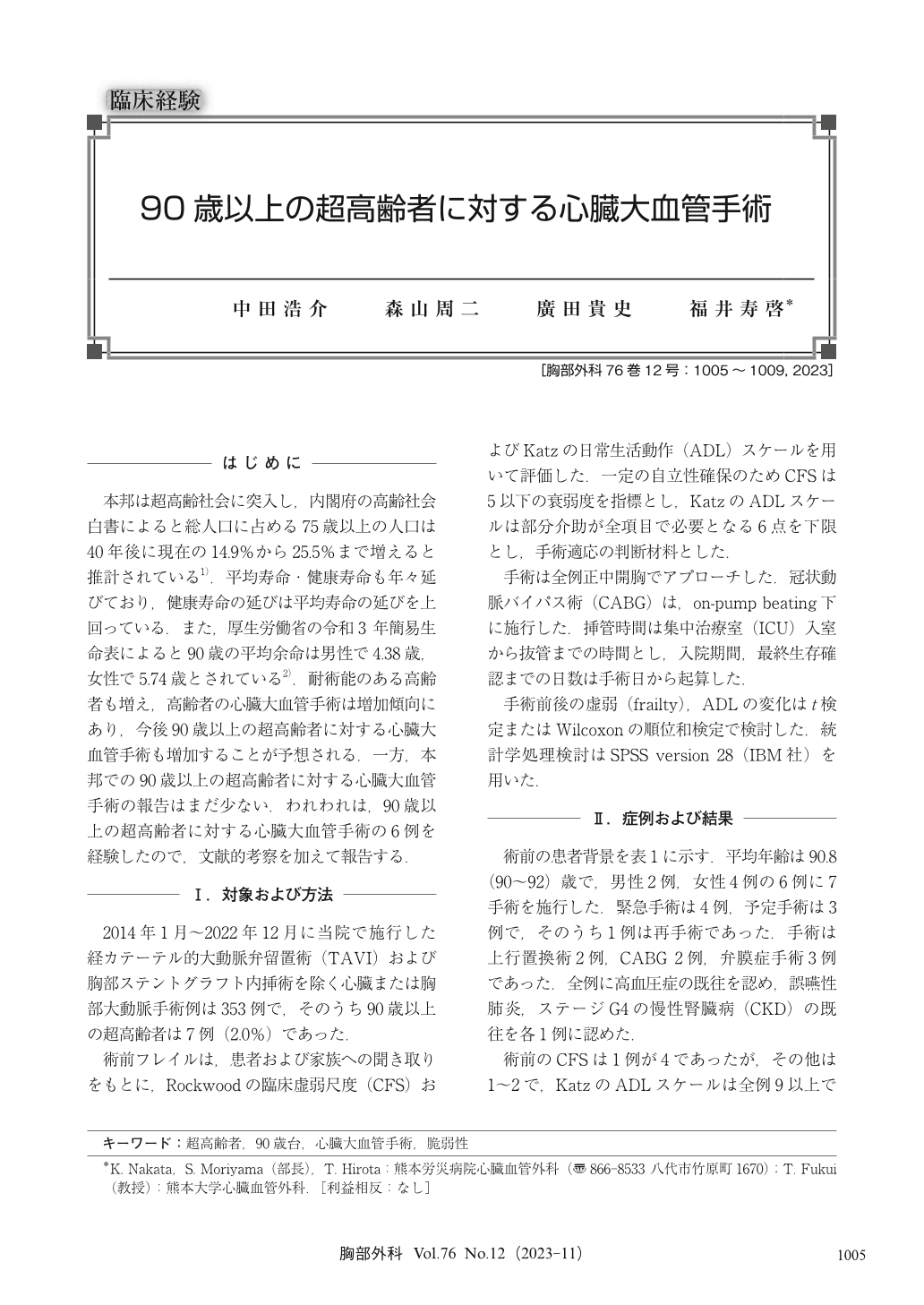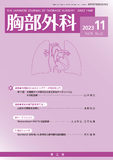Japanese
English
- 有料閲覧
- Abstract 文献概要
- 1ページ目 Look Inside
- 参考文献 Reference
本邦は超高齢社会に突入し,内閣府の高齢社会白書によると総人口に占める75歳以上の人口は40年後に現在の14.9%から25.5%まで増えると推計されている1).平均寿命・健康寿命も年々延びており,健康寿命の延びは平均寿命の延びを上回っている.また,厚生労働省の令和3 年簡易生命表によると90歳の平均余命は男性で4.38歳,女性で5.74歳とされている2).耐術能のある高齢者も増え,高齢者の心臓大血管手術は増加傾向にあり,今後90歳以上の超高齢者に対する心臓大血管手術も増加することが予想される.一方,本邦での90歳以上の超高齢者に対する心臓大血管手術の報告はまだ少ない.われわれは,90歳以上の超高齢者に対する心臓大血管手術の6例を経験したので,文献的考察を加えて報告する.
Objective:The number of nonagenarians who are eligible for surgery is increasing in Japan with the increase of the elderly population and the improvement of outcomes of cardiovascular surgery.
Methods:Six nonagenarians underwent cardiovascular surgery from January 2014 to December 2022. Frailty, activity of daily living, and postoperative survival were examined.
Results:The mean age was 90.8 (90-92) years old. Seven operations (2 coronary artery bypass, 3 cardiac valve surgery, and 2 ascending aorta replacement) were performed in 6 patients (2 males and 4 females). Four of them were emergent or urgent surgery. The mean hospital stay was 39.0 days, without postoperative 30-day or in-hospital deaths. However, two patients died of aspiration pneumonia and cancer. Although early postoperative activities of daily living (ADL) was declined, ADL was improved to the same level as preoperative status, one year after operation. The mean postoperative observation period was 988.3 days, and the longest postoperative survival was 2,676 days.
Conclusion:Nonagenarians may have acceptable outcomes with cardiovascular surgery by evaluating not only age but also ADL and frailty.

© Nankodo Co., Ltd., 2023


